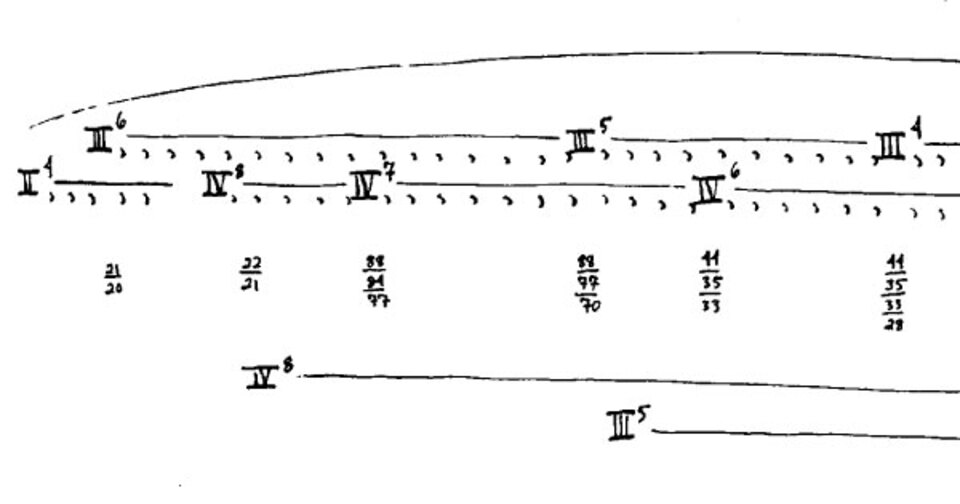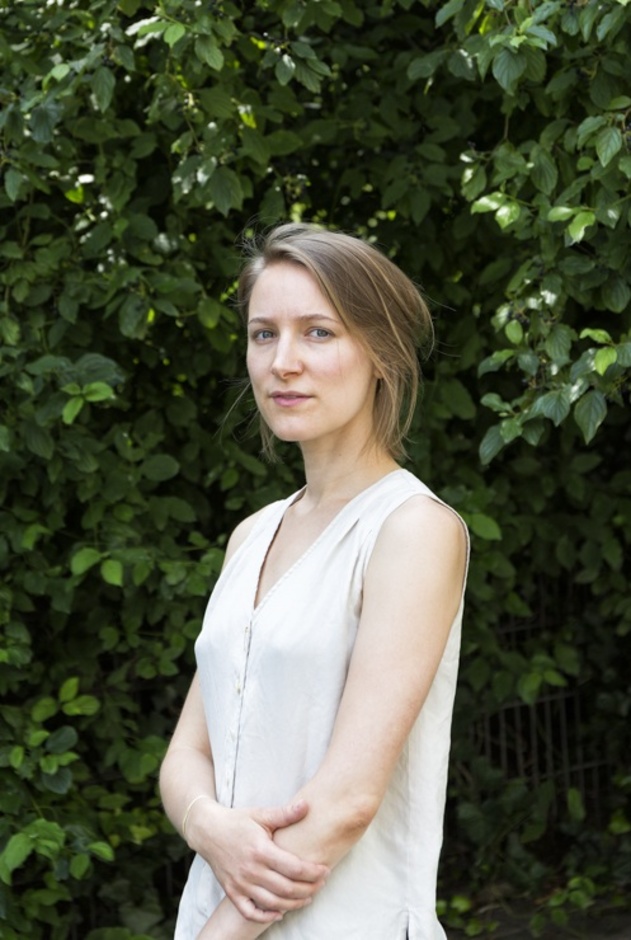
Davancens / Olencki / Smith
Add to Calendar
$15 General / $10 Students
Joseph Davancens (contrabass), Weston Olencki (trombone), and Andrew C. Smith (electronics, Fender Rhodes) perform Catherine Lamb’s monumental work matter/moving, alongside contemplative music by Craig Shepard and Larry Polansky, plus highly active solo pieces by Joseph Davancens and Timothy McCormack.
Program
Larry Polansky, Piano Study #5 for Just Fender Rhodes
Joseph Davancens, perlin303
Craig Shepard, Vallorbe, le 23 juillet 2005
Timothy McCormack, HEAVY MATTER
Catherine Lamb, matter/moving
Indexical’s Santa Cruz concert series is made possible through generous support by Arts Council Santa Cruz.


Larry Polansky:
Piano Study #5 (for Just Fender Rhodes)
Piano Study #5 is one of my earliest pieces, written for Fender Rhodes in a non-octave repeating, 13-limit just intonation. It is an improvisation in which the “prime-tonality” of the harmonic fabric slowly evolves. The score comprises the tuning, and simple instructions for moving a folk tune through the harmonic possibilities of the tuning system from lower to higher primes and back again.
The piano tuning is:
Octave 1 1/1 21/20 9/8 6/5 5/4 4/3 7/5 3/2 8/5 5/3 7/4 15/8 Octave 2 1/1 21/20 9/8 6/5 5/4 4/3 7/5 3/2 8/5 5/3 7/4 15/8 Octave 3 1/1 33/32 9/8 6/5 5/4 21/16 11/8 3/2 8/5 13/8 7/4 15/8 Octave 4 1/1 21/20 9/8 7/6 5/4 4/3 11/8 3/2 8/5 27/16 7/4 15/8
Piano Study #5 has a somewhat unusual history, nicely bookended by tonight’s performance. I wrote this piece in 1975 while an undergraduate at UC Santa Cruz. I borrowed a Fender Rhodes from fellow student Paul Sparrow, an oscilloscope from the electronic music studio, and purchased a monochord from Lou Harrison and Bill Colvig, my first meeting with those lifelong friends. I performed the piece on a concert of 20th Century American Music (1976) for piano, organized by fellow student Steve Key, and then again on my senior recital (1977) in the old Music Department concert hall (now in the Theater Department). Subsequent performances were at Roulette in NYC in 1979 (on a piano loaned to me by Dick Higgins and Philip Corner), and finally at Mills College in 1981. The score was published in Xenharmonikon in 1977, and a short essay about it in 1/1: The Journal of the Just Intonation Network, in 1985.
The difficulty of playing the piece (I’m a guitarist, not a pianist), tuning the piano, and the experience of carrying a Fender Rhodes up and down five flights of stairs to my NYC loft on Leonard Street and five or six blocks more to Roulette on Franklin St., discouraged me from continuing to perform the after that. I finally recorded it (with Tom Erbe, engineer) on my CD entitled Change (2002, Artifact CDs), and sold my Fender Rhodes. In the original performances, I had used the tune “Rally Round the Flag,” but on the Artifact recording I used “When de Whale Get Strike,” in memory of Bill Colvig . This song is a Bahaman lament for a fallen friend recorded by Alan Lomax (1935) and later transcribed by Ruth Crawford Seeger (1941).
It seemed to me possible, when writing the piece some 40 years ago, that anyone with a Fender Rhodes, a deep knowledge of tuning theory and the ability to improvise could perform Piano Study #5. However, to the best of my knowledge, Andrew Smith is the first to do so. Andrew’s advanced skills as a pianist and improviser, his understanding of tuning (and thus the idea behind the piece), and his own compositional creativity revivify this old work in a way that I had only dreamed of. I am extremely fortunate that he has done so, even recording it for the Indexical label (with David Dunn, engineer). Astonishingly, Andrew even seems to enjoy, or at least pretends to enjoy, schlepping the Fender Rhodes.
Larry Polansky 2/27/16
Joseph Davancens:
perlin303
Craig Shepard:
Vallorbe, le 23 juillet 2005
Timothy McCormack:
HEAVY MATTER
Timothy McCormack’s music centers on the idea that sound has mass and is experienced as a physical object. His work also aims to create intimate social environments which prioritize communication, listening, and responsibility towards one another.
[Homepage](http://www.timothymccormack.com).
Catherine Lamb:
matter/moving

Catherine Lamb (b. 1982, Olympia, Wa, U.S.), is a composer exploring the interaction of elemental tonal material and the variations in presence between shades and beings in a room. She has been studying and composing music since a young age. In 2003 she turned away from the conservatory in an attempt to understand the structures and intonations within Hindustani Classical Music, later finding Mani Kaul in 2006 who was directly connected to Zia Mohiuddin Dagar and whose philosophical approach to sound became important to her. She studied (experimental) composition at the California Institute of the Arts (2004-2006) under James Tenney and Michael Pisaro, who were both integral influences. It was there also that she began her work into the area of Just Intonation, which became a clear way to investigate the interaction of tones and ever-fluctuating shades, where these interactions in and of them-selves became structural elements in her work. Since then she has written various ensemble pieces (at times with liminal electronic portions) and continues to go further into elemental territories, through various kinds of research, collaboration, and practice (herself as a violist). She received her MFA from the Milton Avery School of Fine Arts at Bard College in 2012 and is currently residing in Berlin, Germany.
Davancens / Olencki / Smith
Add to Calendar
$15 General / $10 Students
